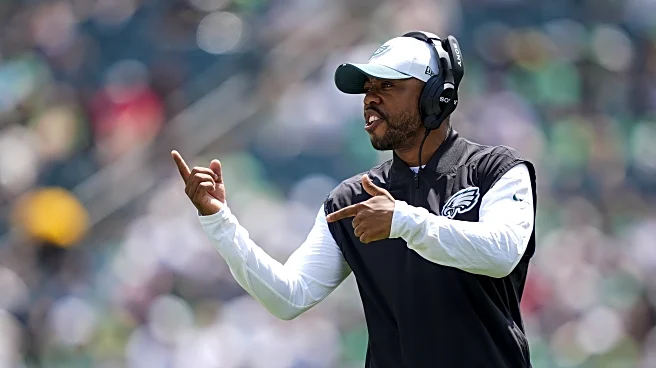What's Happening?
A report by Common Sense Media reveals that online content promoting stereotypical masculinity significantly affects boys' self-esteem and social behavior. The study surveyed 1,017 boys aged 11-17, finding that 73% regularly encounter content that reinforces traditional gender roles. This exposure correlates with lower self-esteem and increased feelings of loneliness. Boys with high exposure to such content are more likely to avoid discussing their feelings, believing it makes them appear weak. The report suggests that school districts should implement mentorship programs to provide boys with positive male role models, addressing the challenge of a female-dominated education profession.
Why It's Important?
The findings underscore the need for educational institutions to address the impact of digital content on youth mental health. By fostering environments where boys can engage with positive male role models, schools can help mitigate the negative effects of online masculinity content. This is crucial in promoting healthy self-esteem and emotional expression among boys, potentially reducing the risk of mental health issues. The report highlights the broader societal implications of digital media consumption and the importance of guiding youth towards healthier perceptions of masculinity.
What's Next?
School districts may consider developing mentorship programs that connect boys with adult male role models. These initiatives could focus on promoting healthy masculinity and emotional well-being. Additionally, educators and policymakers might explore strategies to counteract the negative effects of online content, such as digital literacy programs that teach critical consumption of media. The report could also prompt further research into the long-term impacts of digital masculinity content on youth development.
Beyond the Headlines
The report raises ethical questions about the responsibility of digital platforms in moderating content that affects youth mental health. It also highlights cultural shifts in perceptions of masculinity and the role of media in shaping these views. Long-term, this could influence societal norms around gender roles and emotional expression, prompting discussions on how to foster inclusive environments for all genders.









